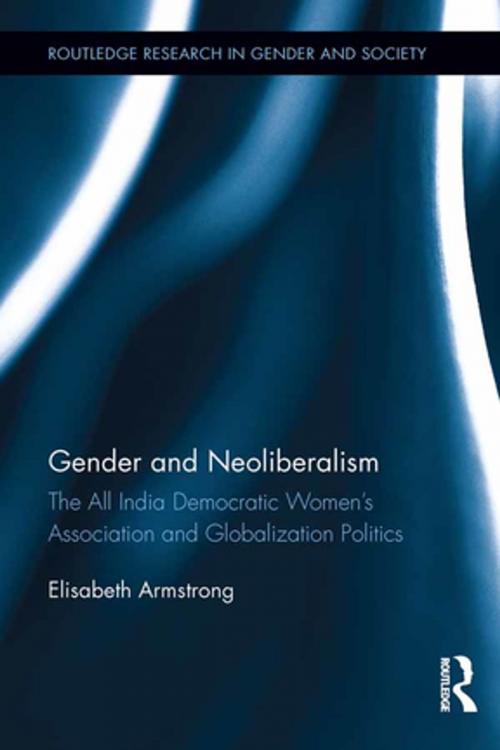Gender and Neoliberalism
The All India Democratic Women’s Association and Globalization Politics
Nonfiction, Social & Cultural Studies, Social Science, Gender Studies, Women&, Sociology| Author: | Elisabeth Armstrong | ISBN: | 9781317911418 |
| Publisher: | Taylor and Francis | Publication: | November 7, 2013 |
| Imprint: | Routledge | Language: | English |
| Author: | Elisabeth Armstrong |
| ISBN: | 9781317911418 |
| Publisher: | Taylor and Francis |
| Publication: | November 7, 2013 |
| Imprint: | Routledge |
| Language: | English |
This book describes the changing landscape of women’s politics for equality and liberation during the rise of neoliberalism in India. Between 1991 and 2006, the doctrine of liberalization guided Indian politics and economic policy. These neoliberal measures vastly reduced poverty alleviation schemes, price supports for poor farmers, and opened India’s economy to the unpredictability of global financial fluctuations. During this same period, the All India Democratic Women’s Association, which directly opposed the ascendance of neoliberal economics and policies, as well as the simultaneous rise of violent casteism and anti-Muslim communalism, grew from roughly three million members to over ten million. Beginning in the late 1980s, AIDWA turned its attention to women’s lives in rural India. Using a method that began with activist research, the organization developed a sectoral analysis of groups of women who were hardest hit in the new neoliberal order, including Muslim women, and Dalit (oppressed caste) women. AIDWA developed what leaders called inter-sectoral organizing, that centered the demands of the most vulnerable women into the heart of its campaigns and its ideology for social change. Through long-term ethnographic research, predominantly in the northern state of Haryana and the southern state of Tamil Nadu, this book shows how a socialist women’s organization built its oppositional strength by organizing the women most marginalized by neoliberal policies and economics.
This book describes the changing landscape of women’s politics for equality and liberation during the rise of neoliberalism in India. Between 1991 and 2006, the doctrine of liberalization guided Indian politics and economic policy. These neoliberal measures vastly reduced poverty alleviation schemes, price supports for poor farmers, and opened India’s economy to the unpredictability of global financial fluctuations. During this same period, the All India Democratic Women’s Association, which directly opposed the ascendance of neoliberal economics and policies, as well as the simultaneous rise of violent casteism and anti-Muslim communalism, grew from roughly three million members to over ten million. Beginning in the late 1980s, AIDWA turned its attention to women’s lives in rural India. Using a method that began with activist research, the organization developed a sectoral analysis of groups of women who were hardest hit in the new neoliberal order, including Muslim women, and Dalit (oppressed caste) women. AIDWA developed what leaders called inter-sectoral organizing, that centered the demands of the most vulnerable women into the heart of its campaigns and its ideology for social change. Through long-term ethnographic research, predominantly in the northern state of Haryana and the southern state of Tamil Nadu, this book shows how a socialist women’s organization built its oppositional strength by organizing the women most marginalized by neoliberal policies and economics.















